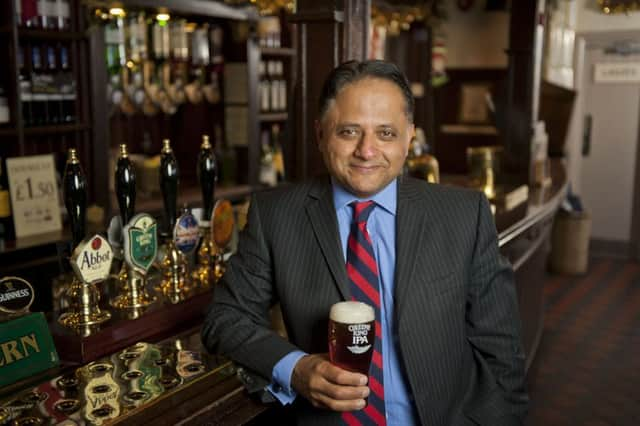Green light for Greene King’s deal to snap up Spirit


The Competition & Markets Authority (CMA) said Greene King and Spirit had agreed to sell 16 pubs to allay its concerns about a pubs and brewing marriage that forms a new giant with more than 3,000 outlets in the UK.
Earlier this month, the CMA had threatened an “in-depth investigation” following its preliminary inquiry into the takeover if the two firms failed to offer sufficient remedies.
Advertisement
Hide AdAdvertisement
Hide AdThe initial probe found that 1,000 Spirit pubs overlapped with one of Greene King’s 1,900 outlets. In the vast majority of these cases, the watchdog said it had no concerns “given the many alternative pubs offering similar eating and drinking options”.
However, the CMA identified a stumbling block to the transaction where the merger gave rise “to a realistic prospect of a substantial lessening of competition in 16 local areas”.
Yesterday the CMA said the two parties to the merger had agreed to divest nine Greene King pubs and seven Spirit pubs to address these concerns.
Rooney Anand, chief executive of Greene King, whose managed brands include Flame Grill and Hungry Horse, as well as individual pubs such as Milnes in Edinburgh, hailed the CMA finding.
“This is a great result,” Anand said. “The CMA confirmed that only a small number of pubs will have to be sold in order for us to complete the acquisition of Spirit, which means that both the profit impact and business disruption are minimised.”
The Greene King boss said he believed the outcome was “fair and sensible”, and meant the new enlarged company could deliver significant financial benefits to both sets of shareholders.
One analyst commented: “This always seemed the most likely outcome given the regulator saw an anti-competitive overlap in very few areas.”